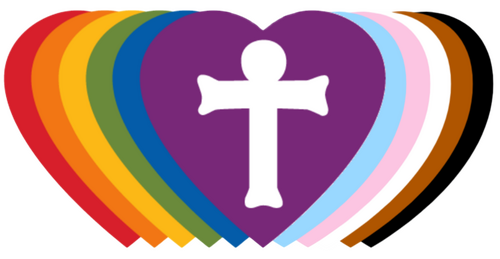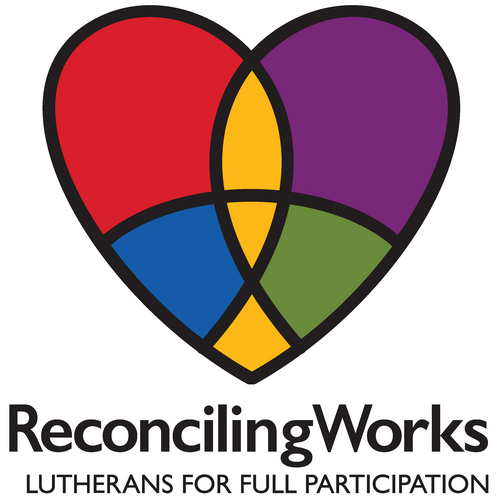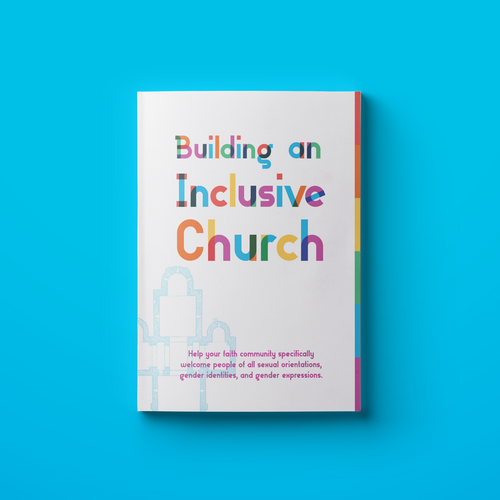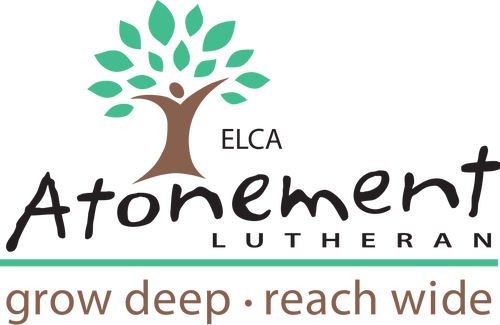The Reconciling in Christ (RIC) Program is for congregations, synods, colleges, seminaries, and other Lutheran organizations. Lutheran communities that publicly welcome lesbian, gay, bisexual, and transgender people are accepted onto the Reconciling in Christ Roster. Most groups start the process of consideration by engaging in a study program or series of educational meetings. Hearing the experiences of LGBTQIA+, Black, Brown, Indigenous, People of Color, as well as people with differing physical & mental abilities, and their families, often creates greater understanding and insights.
Reconciling in Christ
The Reconciling in Christ program works to “ensure the welcome, inclusion, celebration, and advocacy for people of all sexual orientations, gender identities, and gender expressions; work for racial equity and commit to anti-racist work and support the national program.”
- Read more: How congregations become a RIC partner
- Read more: Mapping your RIC journey


ReconcilingWorks
ReconcilingWorks is an independent non-profit organization funded by the generosity of individuals, faith communities, grants, and from curated resources and trainings. ReconcilingWorks does not receive funding from any Lutheran denomination.
Since 1974 when originally called Lutherans Concerned, ReconcilingWorks has advocated for the full welcome, inclusion, and equity of lesbian, gay, bisexual, transgender, queer, intersex, and asexual/aromantic (LGBTQIA+) Lutherans in all aspects of the life of their Church, congregations, and community.
ReconcilingWorks believe that God values and embraces each person as a beloved child, that the Spirit gives a diversity of gifts for the common good, and that Jesus Christ calls us to work for justice.
Read more about ReconcilingWork's Mission, Vision, and Values.
Since 1974 when originally called Lutherans Concerned, ReconcilingWorks has advocated for the full welcome, inclusion, and equity of lesbian, gay, bisexual, transgender, queer, intersex, and asexual/aromantic (LGBTQIA+) Lutherans in all aspects of the life of their Church, congregations, and community.
ReconcilingWorks believe that God values and embraces each person as a beloved child, that the Spirit gives a diversity of gifts for the common good, and that Jesus Christ calls us to work for justice.
Read more about ReconcilingWork's Mission, Vision, and Values.
Commitments
ReconcilingWorks asks faith communities to commit to the following to be recognized as a Reconciling in Christ (RIC) Partner:
1. Your community explicitly states a welcome to people of "all sexual orientations, gender identities, and gender expressions" or "LGBTQIA+" and names its commitment to racial equity or anti-racism in its welcome statement.
» Atonement may discern to consider revising our current Welcome Statement, in order to better live out this commitment.
2. Open to calling an LGBTQIA+ and Black, Brown, Indigenous, Person of Color (BIPOC) Rostered Leader.
» Atonement already lives out this commitment.
3. Will allow community space/sanctuary to be used for LGBTQIA+ weddings and blessings.
» Atonement already lives out this commitment.
4. Will make a meaningful contribution annually to support the national Reconciling in Christ (RIC) program.
» Atonement as an organization currently does not make a contribution to the national Reconciling in Christ program.
Learn More
Read more about the four Reconciling in Christ partner commitments, additional information as to what they mean, and available resources for congregations.

About the Process
Building an Inclusive Church (BIC) Toolkit
Download the BIC Toolkit
The Building an Inclusive Church (BIC) Toolkit is a step-by-step guide to help facilitate a welcoming journey in a faith community and extend a specific welcome to people of all sexual orientations, gender identities, and gender expressions, drawing upon over thirty years of experience within a variety of Christian denominations.
Atonement is using the The Building an Inclusive Church (BIC) Toolkit to help guide our own Welcome Journey Conversations, we are currently journeying through Step 6 (page 49) of the guide.
Building an Inclusive Church (BIC) Training helps congregations design and implement a journey for their faith community to publicly and intentionally welcome people of all sexual orientations, gender identities, and gender expressions, and incorporate a commitment to the work of racial equity.
Atonement is using the The Building an Inclusive Church (BIC) Toolkit to help guide our own Welcome Journey Conversations, we are currently journeying through Step 6 (page 49) of the guide.
Building an Inclusive Church (BIC) Training helps congregations design and implement a journey for their faith community to publicly and intentionally welcome people of all sexual orientations, gender identities, and gender expressions, and incorporate a commitment to the work of racial equity.
Building an Inclusive Church equips faith groups with ways to create dialogue, deepening relationships throughout their faith community rather than sparking debate and division.
The Building an Inclusive Church (BIC) Toolkit and BIC Training are complementary resources, to be used side by side in the journey of welcome. The training itself is designed to expand on the tools in the BIC Toolkit to best support the team of leaders who hope to guide their faith community.
Atonement in years prior has hosted the Building an Inclusive Church Training for surrounding churches to participate in educating and preparing them for their own welcome conversations.
The Building an Inclusive Church (BIC) Toolkit and BIC Training are complementary resources, to be used side by side in the journey of welcome. The training itself is designed to expand on the tools in the BIC Toolkit to best support the team of leaders who hope to guide their faith community.
Atonement in years prior has hosted the Building an Inclusive Church Training for surrounding churches to participate in educating and preparing them for their own welcome conversations.
Meet Deacon David Behling
Chippewa Falls, Wisconsin

David Behling
Program Coordinator for ReconcilingWorks
David Behling (he/they) is a Deacon in the Evangelical Lutheran Church in America. He grew up experiencing and appreciating the benefits of living in diverse communities, mostly in Tucson, Arizona, but also during the years he lived in Yokosuka, Japan, Washington, D.C., and Erlangen, Germany. David’s education and professional background is eclectic, including a BA in English, and graduate degrees in Biblical Studies, Technical Communication, and Creative Writing and working at different times as a homemaker, a writer, a college professor, an academic administrator, a synod staff member, and a campus minister. He finds joy in cooking, reading, board games, and long evening walks with his spouse, Karen, with whom he helped raise three amazing children.
See the ReconcilingWorks Leadership Team
